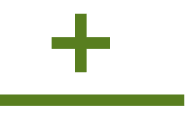This article will discuss modular construction advantages and disadvantages, the different types, risks, and H+M Modular's EPC approach
Modular construction may seem like a modern innovation, but the method was first used during the United States Western expansion, notably during the California Gold Rush. It involved transporting prefabricated houses from the East Coast to burgeoning communities in the West, and it grew throughout the early twentieth century, particularly after World War II, as a solution to housing shortages.
Over the last 30 years, an increasing number of construction projects across various industries have chosen to use modular construction to produce faster results that are high-quality, efficient, and have fewer negative environmental impacts. In fact, experts predict that this trend will continue, with more contractors pushing fabrication to offsite facilities and manufacturers expanding offerings of prefab subassemblies.
This article will discuss modular construction's advantages and disadvantages, the different types, the risks, and why H+M’s Modular's approach can help you experience the best of what offsite construction can offer.
What is Modular Construction?
Modular construction involves building components away from a site in a controlled location where construction can occur safely and securely. After the process is complete, finished components are transported back on-site to be assembled as part of an existing or single structure.
Offsite construction can reduce costs using the same materials and following the same codes and standards as traditional construction. Design, fabrication, and construction phases can occur at the same time as on-site work, which helps to shorten construction timelines while producing attractive, high-quality results.
Different Types of Modular Skid-Mount Systems
- Industrial Systems: Industrial skid-mounted systems can improve productivity and quality within manufacturing and processing environments. These systems are designed for different applications, such as facilitating the transport and organization of materials, chemical mixing for various production needs, and temperature regulation.
- Water Treatment Systems: Skid-mounted water treatment systems play an important role in ensuring the availability of clean and safe water. They are used in several different settings, from industrial operations to community services, to remove contaminants, treat wastewater for reuse or safe disposal, and dose treatment chemicals.
- Power Generation Systems: Power generation modular skid-mounted systems are essential for providing electricity, especially in remote or underserved areas, and as backup power sources. They include portable generators, combined heat and power units that generate electricity and useful heat simultaneously, and gas compression systems.
Modular Construction Advantages and Disadvantages
Offsite construction is becoming more popular for several reasons. In no particular order, the first desirable quality is its ability to bring projects to market faster. It appeals to environmentally conscious stakeholders who want to reduce waste. Modular is also an effective solution to the construction industry's ongoing labor shortage, enabling better quality control and safety levels.
However, if you’re considering modular construction for your next project, there are a few advantages and potential drawbacks to consider before signing on. We've outlined the key modular construction advantages and disadvantages below for your convenience.
Risks in Modular Construction
While offsite construction is well-known for its advantages, it can also present several substantial risks. These risks can be broadly categorized into three main areas: people, processes, and technology. According to recent research, the main pain points include:
- Immature Processes and Inconsistent Implementation: The industry often struggles with immature processes and inconsistent implementation. Inconsistency can lead to variable levels of quality and efficiency, which can impact the overall success of a project.
- Lack of Detailed Offsite Design Solutions: There is a significant lack of detailed design solutions tailored for offsite construction. This gap can impede modular construction process optimization, affecting the final structure's aesthetic and functionality.
- Inadequate Workforce Training: The need for properly developed, targeted training programs for the offsite construction workforce is a significant challenge. This lack of training can impact construction quality and cause project delays.
- Poor Integration and Collaboration: Another significant hurdle is ineffective integration and collaboration with key stakeholders on offsite projects, resulting in miscommunication, misunderstandings, and disjointed project execution.
Modular Construction Advantages and Disadvantages:
Partner With H+M Modular For Optimal Modular Outcomes
Modular construction has several attractive benefits, including cost savings, shorter construction timelines, environmental sustainability, and improved safety and quality. However, due to its unique design challenges, the need for advanced planning and collaboration must be addressed to realize its full potential. Working with the right EPC Contractor can help you overcome common obstacles and improve the outcome of your next modular construction project while staying on schedule and within budget.
Leveraging modular construction across the Energy and Chemicals industries can result in significant efficiencies, improved safety and quality, and cost savings. H+M’s modular approach provides comprehensive and tailored modular construction solutions across the United States.
We are dedicated to providing trust, experience, and efficiency through all stages of engineering, procurement, and construction through our proven strategic EPC approach. Our comprehensive services, including detail engineering and design, procurement, fabrication, and construction allow us to take your project from conception to completion, tailoring engineering and design solutions to meet your unique needs.

The H+M Industrial Team
For over three decades, we have provided best-in-class capital project management services to Energy and Chemical industries through our proven EPC approach. We are dedicated to providing trust, experience, and efficiency through all stages of engineering, procurement, and construction--on budget and on time.

Partnering with H+M Modular
H+M Modular, a division of H+M Industrial EPC, specializes in custom fabricated equipment, modules, and skids for energy and chemical industries. The approach emphasizes the potential for decreased risk through more controlled fabrication, leading to enhanced quality and safety, reduced labor costs and construction times, improved labor availability, and solutions to geographic challenges. We are dedicated to providing trust, experience, and efficiency through all stages of traditional and modular construction projects using our proven EPFC approach, If you're considering modular fabrication, we invite you to connect with us to learn about how modular solutions can improve project outcomes.





